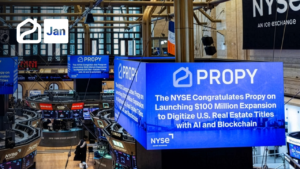
It is the moment that the market has been anticipating. Millennials are finally trading in their roommates and their parents’ basements for homes of their own. In January of 2017, millennials eclipsed Generation X to take the top spot for new mortgages among generational cohorts. Since then, their share of the pie has only grown. In 2019, millennials account for nearly half of new mortgages in the United States.
However, these new market leaders have different priorities than their predecessors. Compared to Xers and boomers, millennials tend to place more value on affordability and favor zip codes where their dollars will stretch further.
Most Popular U.S. Metro Areas for Millennials
As Americans often associate millennials with hipster culture, many might expect these mortgages to be for properties in places like Williamsburg and Wicker Park. However, that is not giving millennials enough credit.
According to the National Association of Realtors (NAR), the following metro areas are among some of the most popular for millennial residents: Madison, WI; Grand Rapids-Wyoming, MI; Seattle-Tacoma-Bellevue, WA; Durham-Chapel Hill, NC; and Bakersfield, CA. In each metro area, millennials represent more than two-thirds of new movers.
Millennials are wisely choosing places where they can buy at a bargain and live much better than they would in Brooklyn. The point is best illustrated by millennials who recently moved into the Bakersfield area. The NAR found that the average millennial can afford 15% of homes currently available in Bakersfield compared with just 4% of properties on the market in Los Angeles. Furthermore, although the city’s unemployment rate is higher than the national average, its location between LA and San Francisco makes it ideal for millennials who work from home and only visit the office occasionally.
How Millennials Are Changing the Game
Millennials are also changing the way that real estate is purchased. Like Xers and boomers, millennials start their searches online, but many take the digital experience further by opting for virtual reality (VR) home tours and mobile mortgage apps that interface with their bank accounts to automate income and employment verification.
It is likely that as blockchain technology matures, millennials will also begin shifting away from real estate agents and lawyers toward blockchain-based solutions that accelerate the purchase process by eliminating the need for third parties.
Is This Blockchain’s Moment?
Propy has made a name for itself as an innovative blockchain-enabled real estate system that offers aggregated listings and an online transaction platform that allows parties to upload and digitally sign their documents. The escrow process is handled by smart contracts that help to speed things up and save on legal fees. Furthermore, everything is stored on a blockchain; documents can be accessed by interested parties and cannot be altered by outsiders.
After bringing VR home tours and mobile mortgage apps into the mainstream, it is only a matter of time before millennials do the same for blockchain. The real estate market will never look the same.






